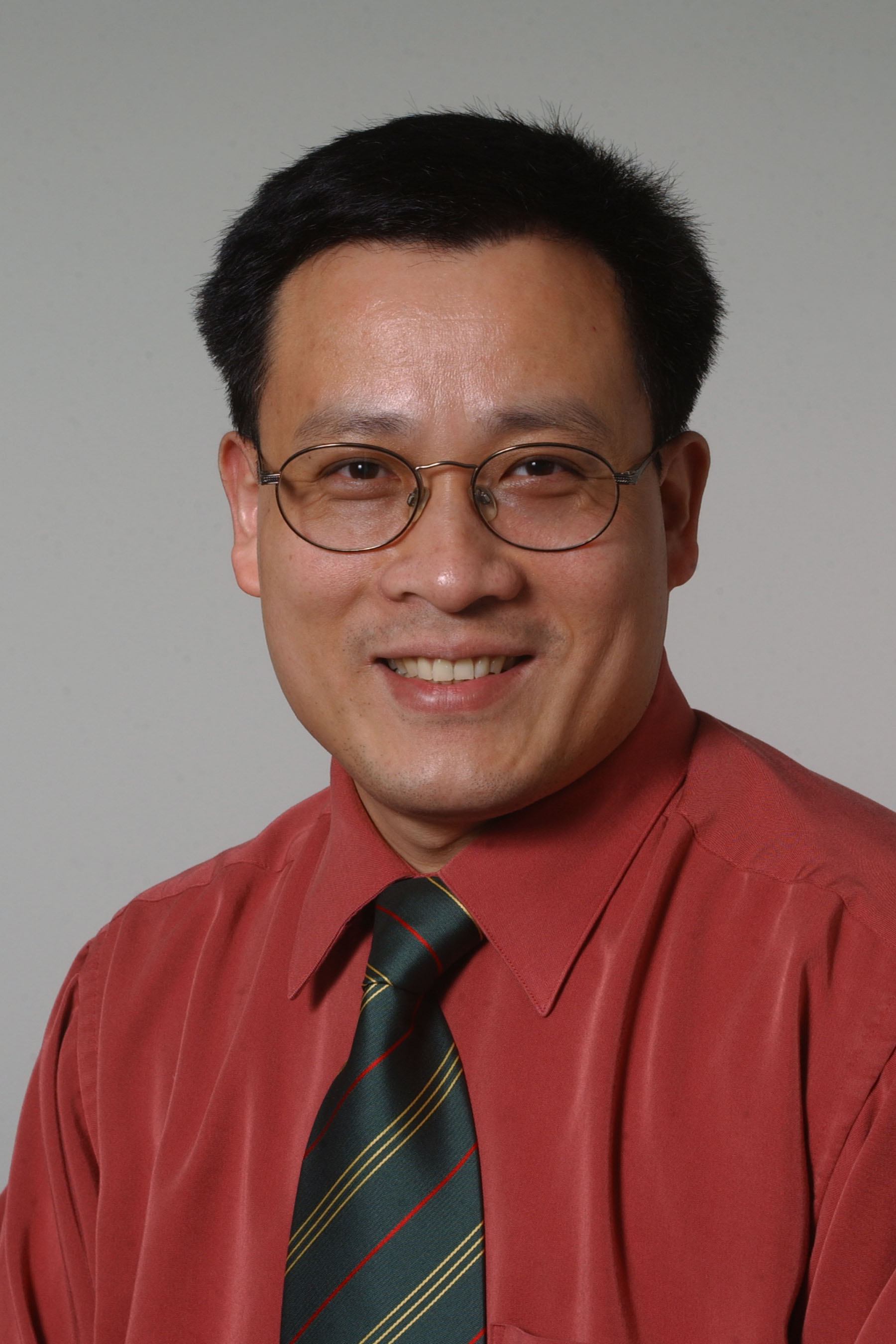Yue Joseph Wang reappointed Grant A. Dove Professor of Electrical and Computer Engineering

Yue (Joseph) Wang, professor of electrical and computer engineering in the College of Engineering at Virginia Tech, has been reappointed the Grant A. Dove Professor of Electrical and Computer Engineering by Virginia Tech President Timothy D. Sands and Executive Vice President and Provost Thanassis Rikakis.
The Grant A. Dove Professorship of Electrical and Computer Engineering was established in 2004 through a gift from Comcast Inc. to recognize the contributions of Dove, a former member of their board of directors, who earned his bachelor's degree in electrical engineering from Virginia Tech in 1951.
Wang, based in the National Capital Region, has held the Dove Professorship since 2009.
Wang joined the Virginia Tech Bradley Department of Electrical and Computer Engineering in 2003 and is internationally known for his pioneering research in the field of bioinformatics, systems biology, medical imaging, and signal processing.
His major contribution is to machine learning and signal processing in exploring high-dimensional big data for biomedical research; his recent work has consisted of modeling biological networks and identifying biomarkers for facilitating precision medicine.
Wang has been principal investigator or co-principal investigator on 28 projects, with personal responsibility for approximately $12 million. In addition, he is associate editor for International Journal of Biomedical Imaging and EURASIP Journal on Bioinformatics and Systems Biology. He has served as an associate editor for Institute of Electrical and Electronics Engineers Signal Processing Letters.
He was elected Fellow of the American Institute for Medical and Biological Engineering in 2004 and holds a patent for “independent component imaging.”
Wang has served as a member of the several technical and program committees for international conferences and has served as a charter member in National Institutes of Health BioData Management and Analysis Study Section. He has authored or coauthored 125 publications in peer-reviewed journals, 78 peer-reviewed conference publications accepted on the basis of a full paper review, 50 conference papers accepted on the basis of an abstract review, and has written eight books and/or book chapters.
He was on the ISI Highly Cited Researchers by Thomson Scientific in 2004 with current google citations of more than 6,500. He has published in Nature Reviews with an impact factor of 37.4, in Nature Medicine with an impact factor of 27.4, and in Nature Communications with an impact factor of 11.5.
Wang is the founding director of the Virginia Tech Computational Bioinformatics and Bio-Imaging Laboratory.
A highly regarded teacher, Wang has supervised 12 Ph.D. and seven master’s degree students and has trained 10 postdoctoral fellows at Virginia Tech. He is currently supervising five Ph.D. and two master’s degree students.
Wang received his bachelor's degree and master's degree from Shanghai Jiao Tong University and a Ph.D. from the University of Maryland. He was named Alumnus of the Year in Engineering and Information Technology by the University of Maryland Graduate School in 2005.
Dedicated to its motto, Ut Prosim (That I May Serve), Virginia Tech takes a hands-on, engaging approach to education, preparing scholars to be leaders in their fields and communities. As the commonwealth’s most comprehensive university and its leading research institution, Virginia Tech offers 240 undergraduate and graduate degree programs to more than 31,000 students and manages a research portfolio of $513 million. The university fulfills its land-grant mission of transforming knowledge to practice through technological leadership and by fueling economic growth and job creation locally, regionally, and across Virginia.




